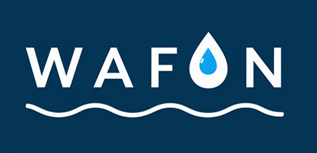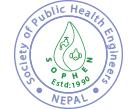
About The Conference
The Sustainable and Resilient Wastewater Management Conference aims to bring together global expertise and regional stakeholders to address critical challenges and opportunities in advancing sustainable and resilient wastewater infrastructure.
By focusing on emerging technologies and strategies, this conferencewill provide a forum for experts in Nutrient Removal and Recovery and Resources Oriented Sanitation to manage wastewater infrastructure projects through innovation, sustainability,and resiliency to achieve Sustainable Development Goal 6 (SDG 6) – Clean Water and Sanitation.
This conference represents a unique opportunity to advance the wastewater sector by contributing to global discussions on sustainability and resilience. By engaging leading experts, fostering collaboration, and focusing on actionable outcomes, the event will leave a lasting impact on both global and regional wastewater practices.
Objectives
- Bring world-class talent and expertise to South Asia.
- Foster collaboration between international and regional experts to shape infrastructure strategiesthrough innovation, sustainability, and resiliencyfor achieving SDG 6 – Clean Water and Sanitation.
- Showcase the potential of nature-based and localized solutions for wastewater management in urban and rural settings.
- Highlight how emerging topics like decarbonization and digitalization can influence global as well as regional wastewater projects.
- Promote knowledge sharing through diverse perspectives on wastewater management challenges and solutions.
- Strengthen connections between research, practice, and policy in the wastewater sector.
- Highlight successful examples of resource recovery and circular economy to offset costs of wastewater treatment
- Achieve resiliency and sustainability in a resource-constrained environment

Schedule Detail
The conference will have no more than two concurrent sessions, ensuring a high level of engagement and discourse. There will be two pre-conference workshops on 9 November 2025.
Target Attendees: 200+ (researchers, practitioners, policymakers, industry leaders)
Two pre-conference workshops:
- Fundamentals of Nutrient Removal and Recovery and Intensification
- Resilient and Sustainable Wastewater Treatment
Each session will be anchored by a lead presentation and supplemented by additional presentations and moderated panel discussions. The broad topics are as follows:
- Process Intensification of Wastewater Treatment
- Climate Resiliency and Sustainability in Wastewater Management
- Decarbonization of Wastewater Treatment Processes
- Nature-based and Decentralized Systems
- Resource-oriented sanitation solutions for safely managed sanitation services
- Resource Recovery and Circular Economy in Wastewater Management
- Smart Utilities, Digital Twin, and AI
- Innovations in Water Reuse
- Asset Management for Resilient and Sustainable Wastewater Infrastructure
- Workforce Development for Wastewater Management
- Financing and Business Models for Wastewater Infrastructure
- Detection and Treatment of Emerging Contaminants
- Sustainable Sludge Management
- Socio-cultural and gender aspects of water reuse and resource recovery
- Going to scale: Pilot and lighthouse projects
Each session will be anchored by a lead presentation and supplemented by additional presentations and moderated panel discussions. The broad topics are as follows:
- Process Intensification of Wastewater Treatment
- Climate Resiliency and Sustainability in Wastewater Management
- Decarbonization of Wastewater Treatment Processes
- Nature-based and Decentralized Systems
- Resource-oriented sanitation solutions for safely managed sanitation services
- Resource Recovery and Circular Economy in Wastewater Management
- Smart Utilities, Digital Twin, and AI
- Innovations in Water Reuse
- Asset Management for Resilient and Sustainable Wastewater Infrastructure
- Workforce Development for Wastewater Management
- Financing and Business Models for Wastewater Infrastructure
- Detection and Treatment of Emerging Contaminants
- Sustainable Sludge Management
- Socio-cultural and gender aspects of water reuse and resource recovery
- Going to scale: Pilot and lighthouse projects
Our Steering Committee Members
List of Steering Committee Members
(Alphabetically by last name)
Our Local Organising Committee Members
List of Local Organising Committee Members
(Alphabetically by last name)
VENUE
Kathmandu Nepal
Kathmandu, officially the Kathmandu Metropolitan City, is the seat of federal government and the most populous city in Nepal. As of the 2021 Nepal census, there were 845,767 inhabitants living in 105,649 households and approximately 4 million people in its surrounding agglomeration. It is located in the Kathmandu Valley, a large valley surrounded by hills in central Nepal, at an altitude of 4,344 feet (1,324 metres) above sea level.
Contact Us
Use the form below to contact Us.






